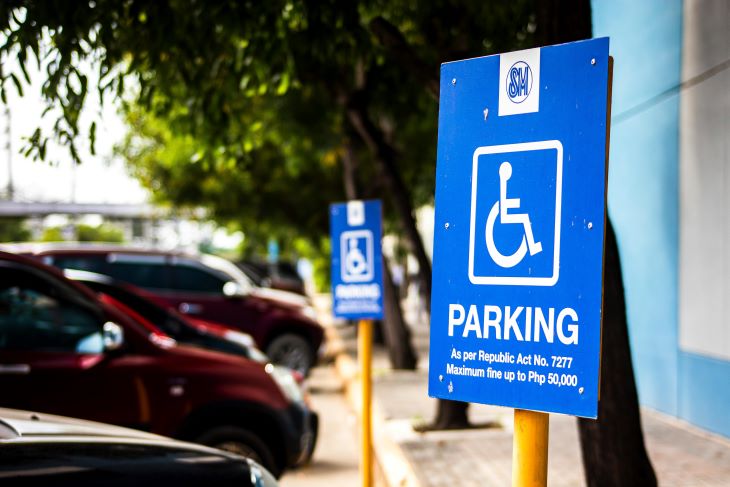In urban planning and civil infrastructure, few things are as critical as ensuring handicap parking regulations in Pennsylvania are met. Handicap parking regulations are part of this endeavor by providing designated parking spaces close to building entrances for individuals with disabilities or reduced mobility. These regulations not only facilitate mobility but also promote inclusivity and accessibility in our communities.
In this article, we outline the handicap parking regulations in Pennsylvania, guiding readers through the types of permits available, eligibility criteria, parking space requirements, rights and responsibilities, common misconceptions, and available resources. By understanding these regulations, individuals can navigate the complexities of handicapped parking with clarity and respect for all community members.
Understanding Handicap Parking Permits
Types of Permits Available in Pennsylvania
In Pennsylvania, handicap parking permits are issued based on the type and severity of disability. Temporary permits are available for individuals recovering from injuries or medical conditions, while permanent permits are issued for individuals with long-term disabilities.
Here are the several types of handicap parking permits available to ensure accessible parking for individuals with disabilities. These permits cater to a variety of needs and situations:
- Permanent Placards: Issued to individuals with permanent disabilities. These placards are blue and are valid for up to five years. Renewal requires medical certification to confirm the ongoing disability.
- Temporary Placards: Designed for individuals with temporary disabilities lasting less than six months. These placards are red and must be renewed if the disability persists beyond the initial period, with a maximum extension of one additional six-month period.
- Severely Disabled Veteran Plates: Available to veterans with a service-connected disability that significantly impairs mobility. These plates feature a unique design and are issued by the Pennsylvania Department of Military and Veterans Affairs upon verification of the disability.
- Organizations Placards: Issued to organizations that frequently transport individuals with disabilities, such as nursing homes or rehabilitation centers. These placards ensure that the organizations can park in designated handicapped spaces when providing services.
- Special Plates: Personalized license plates for vehicles owned by individuals with permanent disabilities. These plates provide the same parking privileges as placards but are attached directly to the vehicle.
All types of permits require a completed application and medical certification to verify the disability. The application process is designed to ensure that those in genuine need receive appropriate parking accommodations, enhancing mobility and accessibility across Pennsylvania.
Eligibility Criteria for Obtaining a Permit
Eligibility for a handicapped parking permit in Pennsylvania typically requires certification by a medical professional, such as a physician or nurse practitioner. The condition must significantly impair mobility, making it difficult to walk even short distances.
How to Apply for a Handicap Parking Permit
Applications for handicap parking permits in Pennsylvania can be obtained from the Department of Transportation (PennDOT) or through its online portal. Applicants must complete the form, provide medical certification, and submit any required fees. You can also apply for a handicap placard on our Dr. Handicap online platform and make it easier for you, no more DMV lines.
Handicap Parking Spaces
Designated Areas and Signage Requirements
Handicap parking spaces in Pennsylvania must be clearly marked with the international symbol of accessibility and must be located nearest to building entrances. The signage should include information on penalties for unauthorized parking.
Accessibility Standards for Parking Spaces
Parking spaces must meet specific dimensions to accommodate wheelchair-accessible vehicles, including adequate space for ramp deployment and maneuvering. These standards ensure that individuals with disabilities can safely enter and exit their vehicles.
Penalties for Unauthorized Parking in Handicap Spaces
Parking in a handicapped space without a permit can result in fines and penalties. Enforcement is strict to deter misuse and ensure that designated spaces are available for those who truly need them.

Rights and Responsibilities
Individuals with disabilities have the right to access designated handicapped parking spaces without discrimination. These spaces are essential for maintaining independence and participating fully in community life. Permit holders must display their permits prominently while parking in handicapped spaces and adhere to all applicable parking regulations. This includes renewing permits as necessary and using the designated spaces responsibly.
Individuals also need to respect handicap parking regulations as it involves more than legal compliance—it’s about fostering an inclusive environment. Being mindful of others’ needs and refraining from unauthorized use of handicapped spaces demonstrates empathy and community spirit.
Common Misconceptions
Dispelling Myths About Handicap Parking Permits
Misconceptions about who qualifies for a handicapped parking permit are common. It’s important to recognize that disabilities vary widely, and not all are visible. Permits are issued based on mobility impairment, regardless of the disability’s visibility.
Addressing Misconceptions About Enforcement
Some believe that misuse of handicapped spaces goes unnoticed or unpunished. In reality, enforcement agencies actively monitor and penalize unauthorized parking. Public awareness and vigilance contribute to maintaining the integrity of handicap parking regulations.
Resources and Support
Pennsylvania’s Department of Transportation and local municipalities offer resources on handicap parking regulations, permit applications, and enforcement. These agencies ensure compliance with state laws and guide the public.
Beyond parking regulations, various support services are available to individuals with disabilities in Pennsylvania. These include accessible transportation options, disability advocacy groups, and programs promoting independent living.
Advocacy groups play a crucial role in promoting accessible parking initiatives and raising awareness about the importance of handicapped parking regulations. Their efforts foster community engagement and support for disability rights.
Handicap Parking Regulations in Pennsylvania
Navigating handicap parking regulations in Pennsylvania requires understanding the types of permits available, compliance with designated parking spaces, and upholding the rights of individuals with disabilities. By dispelling common misconceptions and accessing available resources, communities can ensure that handicap parking remains accessible and equitable for all.
In conclusion, fostering a culture of respect and inclusivity begins with recognizing the significance of handicap parking regulations. Adhering to these regulations and supporting initiatives promotes accessibility for those in need.
Featured image by Vidar Nordli-Mathisen on Unsplash.
